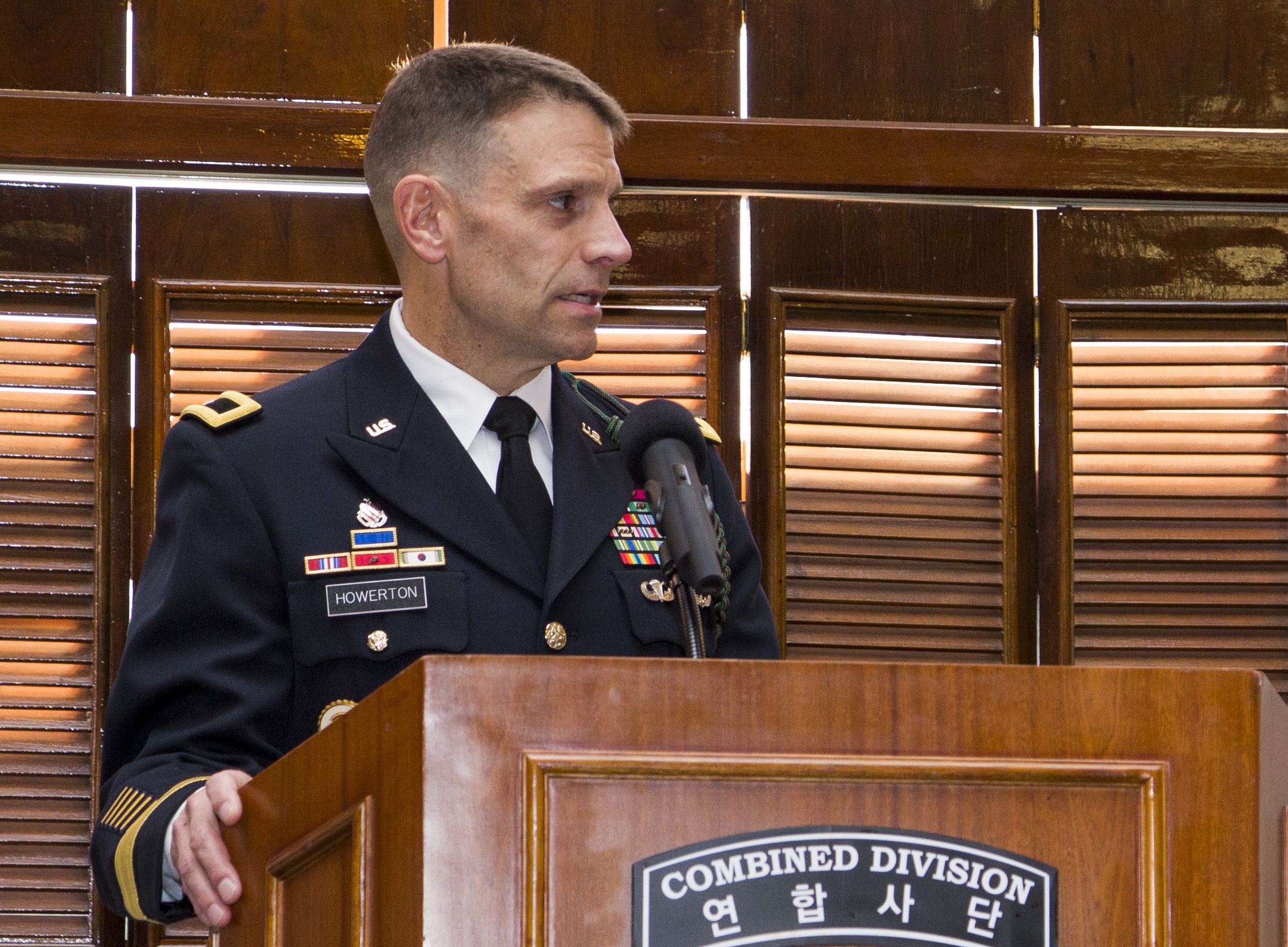An Army brigadier general may face punishment for his workplace conduct while serving as the top White House military official, according to a recently released Defense Department inspector general report.
The IG found that Brig. Gen. Jonathan Howerton, the director of the White House Military Office from 2019 to 2021, used vulgar language and gestures during his tenure, while potentially failing to follow government travel regulations for expenses.
Investigators noted that Howerton, who is currently serving on the Army Staff overseeing program analysis and evaluation, disagreed with the report’s findings. He did not respond to a message Army Times sent to his official email address requesting comment for this story.
The investigation began after the Pentagon’s IG hotline received complaints against Howerton and his civilian deputy between January and September of 2020.
Howerton’s “overall course of conduct, vulgar language and gestures, and failure to show respect for a small number of subordinates resulted in a work environment that adversely affected individuals and the overall organizational climate,” according to the report. Other allegations against Howerton and his civilian deputy were not substantiated, though.
The report recommended the office reform its travel expense procedures and that Army Secretary Christine Wormuth “take appropriate action regarding BG Howerton, including determining whether the substantiated allegations constitute a failure to exhibit exemplary conduct and leadership.”
“The Army has not made any determination regarding the outcome of the DODIG investigation, so it would be premature to comment further at this time,” Army spokeswoman Cynthia O. Smith said in a statement to Army Times.
Trouble on the first day
Problems with Howerton’s office behavior began with his first staff meeting, the report said.
According to an anonymous complaint, Howerton told subordinates that “he liked to use profanity and if you did not like it, to let him f**king know.” On two other occasions, Howerton was seen by others giving the middle finger to two junior staffers — and the office began to conform to his habit of using vulgar language openly in the office.
While the report concluded Howerton did not create a climate of sexual harassment in the workplace, he also had run-ins with inappropriate behavior beyond his profanity.
The report said the general kept a replica artillery round on his desk and one day put the round “to his groin and began thrusting.” Five staffers interviewed for the investigation recall hearing people refer to the replica round as “phallic.”
When a female staffer said that she did not know what the term “phallic” meant, Howerton put the replica to his groin to illustrate a penis, according to the report. After the incident, the anonymous complainant said that they told Howerton to be careful and that his actions were not appropriate.
Howerton’s management of the White House Military Office, “had a negative impact on the staff and their subordinates, affected their own job performance and how they felt about being in the office, created fear of repercussions, or was a factor in leaving the organization,” investigators concluded.
In his interview during the investigation, Howerton contested the veracity of the report’s claims on both his inappropriate language and violations of travel protocols.
He said the report “mischaracterizes his conduct and leadership” in the office, and believed the report only reflected the views of a small minority in the office who were not used to his style of management. He also believed that his travel expenses he put on a personal card rather than his government-issued one fell under certain exemptions.
Investigators interviewed 39 current and former personnel in the WHMO and Executive Office of the President and reviewed more than 800,000 documents and 63,000 images. The document review spanned official emails, phone logs and photographs from government-issued devices. Howerton was also interviewed for the investigation.
Investigators said it was difficult to obtain the documents pertinent to its investigation. The report states that the investigation was delayed for a year due to debates between the Trump administration’s White House lawyers, Pentagon lawyers and the investigators over interview protocols, document gathering and the scope of the investigation.
“We initially received little cooperation from the White House Counsel’s Office or the DoD Office of General Counsel in obtaining documents and evidence relevant to our investigation or in interviewing witnesses,” the report read. “For example, the DoD Office of General Counsel instituted a review process that would periodically provide us with a limited number of documents for our review.”
Howerton is the second Army one-star general to face scrutiny in recent months.
Army Times reported recently that Brig. Gen. Christopher Reid was removed from his staff role at U.S. Cyber Command in September, though it’s unclear why. Smith, the Army spokeswoman, said Reid remains under an unspecified investigation.
Zamone “Z” Perez is an editorial fellow at Defense News and Military Times. He previously worked at Foreign Policy and Ufahamu Africa, where he helped produce podcasts. He is a graduate of Northwestern University, where he researched humanitarian intervention and atrocity prevention in his thesis. He can be found on Twitter @zamoneperez.
Davis Winkie is a senior reporter covering the Army, specializing in accountability reporting, personnel issues and military justice. He joined Military Times in 2020. Davis studied history at Vanderbilt University and UNC-Chapel Hill, writing a master’s thesis about how the Cold War-era Defense Department influenced Hollywood’s WWII movies.

